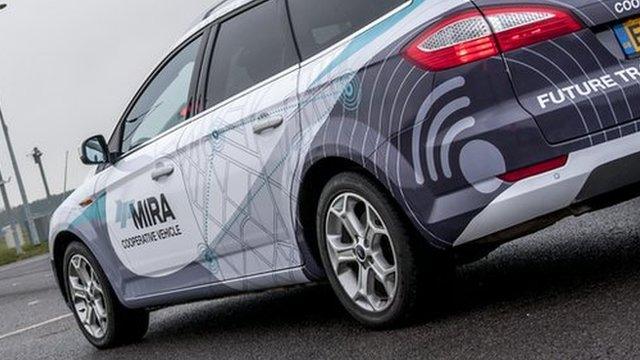Driverless cars could boost rural transport - Glyndwr uni
- Published

Google is the most high-profile company to run self-drive car trials to date
Driverless cars could help improve poor public transport links in rural Wales, academics in Wrexham claim.
Engineers at Glyndwr University believe they should be trialled in Wales because they are well suited to its steep, narrow and slow roads.
They say they could be used as taxis in rural areas, which could significantly improve residents' quality of life.
The team has submitted their views to the Welsh government's draft transport plan, external.
Barry Johnston, lecturer in low carbon at Glyndwr University, said driverless cars had "real potential to deliver a sustainable rural economy for Wales".
"There is a decline in rural populations as more and more young people head into the city to find work and the offset of this has been that public transport links have become even more infrequent - and non-existent in some areas," he said.
"I think we're looking at five to ten years before something like this could become a reality and it would of course need the consent of people living in rural areas, with all of their concerns addressed."
Other ideas suggested by the university to improve transport in Wales include introducing a one-ticket system for bus, rail and other public transport, electrifying the coastal rail line to Holyhead and cutting the journey time from north to south Wales.
- Published11 February 2015

- Published11 February 2015

- Published28 May 2014

- Published3 December 2014
